Common Ground for Texans Program
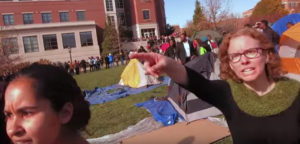
Yesterday (June 9, 2018) I participated in a program sponsored by a local nonpartisan group, Common Ground for Texans. The topic was “Freedom of Speech, Political Identity, and Political Correctness,” or “Freedom of Speech and the Right Not to be Offended.” The focus was campus free speech, and the panel was asked to address “hate speech” and the recent events at Evergreen State College. The moderator was Dan Eckam, and the other panelists were Roy Casagranda, a professor of government at Austin Community College, and Lauren Lluveras, a post-doctoral fellow at the University of Texas. I was the only conservative on the panel. Here is what I said. A video link to the program can be found here.
- Introduction
The mission of this group is “advocating positive solutions through civil engagement,” which is an important and noble goal. What does “civil engagement” mean? Essentially, it consists of rational discourse: talking instead of shouting; listening instead of shutting down opposing views; seeking common ground instead of increasing polarization; using reason and logic instead of emotion as a guide to decision-making; and respecting different points of view instead of demonizing them with labels and slogans.
As a conservative, I don’t agree with all of the policy goals this organization supports, but civil engagement lies at the heart of a liberal (in the Enlightenment sense) society. A healthy democracy depends on it, and a functioning system of higher education cannot succeed without it. People of all political points of view should be able to unite in support of it. Robust, unfettered debate, on any topic. Recall the Lincoln-Douglas debates in 1858, which made Abraham Lincoln a national figure and ultimately altered the course of American history. Would such a debate be possible in 2018? Would SJWs object that two white men cannot address slavery because they had not “experienced” blackness, in the jargon of Critical Race Theory? In the past, protecting free speech regarding political topics wasn’t controversial, but it has become so, especially on college campuses. This should concern all of us, regardless of party affiliation.
Increasingly, civil engagement is being replaced by an ideology of intolerance, cloaked in the vernacular of political correctness. Opposing viewpoints are silenced if they are “hurtful,” marginalize “oppressed groups,” or exhibit “privilege.” Instead of encouraging free inquiry, colleges offer students “safe spaces,” protect them from “microaggressions,” and allow them to avoid uncomfortable ideas with “trigger warnings,” by calling them “hate speech,” and adopting speech codes. I view this development as a serious problem, for two reasons.
First, these values—tolerance, mutual respect, reason, freedom of conscience, freedom of expression, the pursuit of knowledge through inquiry and debate—are the lubrication (the grease) that minimizes the inherent friction that exists among citizens in a pluralistic society. If we can’t talk about our differences, and share a sense of common history and identity as a community (or civil society), we will degenerate into warring tribes. Free speech, protected by the First Amendment, is vitally important to a civil society—perhaps our most sacred right. It is a politically-neutral right, which has been defended by civil libertarians on the left and right. Prominent defenders of free speech, even in today’s highly-charged political climate, include Berkeley law school Dean Erwin Chemerinsky, former ACLU President Nadine Strossen [Hate (2018)], Harvard law professor Alan Dershowitz, and Village Voice columnist Nat Hentoff—all of whom are left-of-center.
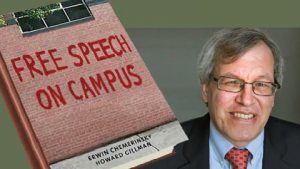
The free exchange of ideas is indispensable to preserving a free society and a healthy democracy.
Second, the advancement of knowledge—intellectual progress—cannot exist without a robust marketplace of ideas. This is what colleges and universities are supposed to foster. This is why they exist. Not to indoctrinate, or reinforce the prevailing orthodoxy, but to test prevailing wisdom, explore new ideas, and debate opposing viewpoints. This is how students learn to think critically. Controversial views are the most important ones to debate. We must not “chill” dissenting opinions.
Medieval universities enshrined orthodoxy and forbade free thinking. The emergence of the modern university was based on the motto of the Royal Society of London, Nullius in verba, or “take nobody’s word for it.” That spirit animates the concept of a liberal education, and explains why Newton, Galileo, and Darwin—all of whom were very controversial in their day–were able to transform our understanding of the natural world, upending the “conventional wisdom” in science. In his excellent book Free Speech on Campus, Dean Chemerinsky summarizes:
Among all the inventions of modern life, few have been more important for promoting human freedom and social progress than the university, organized around the search for knowledge based on free inquiry and debate rooted in reason and experimentation. [p. 52]
This tradition, famously spearheaded by Robert Maynard Hutchins as President of the University of Chicago from 1929 to 1951, is under attack today. Hutchins firmly believed that universities exist for the sake of free inquiry, and “without it they cease to be universities.” Hutchins said that the goal of education is to “unsettle the minds of the young” and “to teach them how to think.” The University of Chicago remains steadfast in its commitment to campus free speech, with its “Chicago Statement,” which relatively few major schools have signed. Sadly, many university administrators want to return to the Medieval era, “protecting” students from uncomfortable ideas that challenge them or provoke them to think. I recommend a three-part internet documentary, Silence U, which reports on this disturbing trend in a balanced manner. Google it on You Tube.
We infantilize students today. We recently celebrated the 74th anniversary of D-Day, where many young men no older the typical college student today courageously stormed the beaches of Normandy. There were no “crying rooms” or coloring books to help them cope. They needed no counseling on “toxic masculinity” (MasculinUT). We do a great disservice to these students by treating them like children.
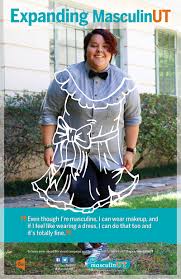
Let me close with this thought: When I began college as a youth many decades ago (in 1972), my certitude was never greater. I thought I knew everything. I was wrong. Fortunately, I was exposed to new, provocative ideas—through books, speakers, lectures, courses, and arguments. I was compelled to question my assumptions, develop new arguments and counter-arguments, and to do further research. I left college with a different worldview. Learning is a lifelong process. I wince when I recall how cocksure I was as a young man. And how wrong I was.
- How should we understand what happened to Bret Weinstein at Evergreen State College?
Short answer: Mobs behave poorly. That is the nature of a mob.
To answer this question more fully, one has to start with a conception of what higher education is for. If we presumed that the high school graduates who arrive on college campuses each fall already knew all they needed to know, and should remain safely ensconced in their comfort zones of received wisdom, fashionable attitudes, and anecdotal experience, what would be the point of four years (or more) of additional education? The whole point of higher education is to instill critical thinking, challenge assumptions, and resist conformity for its own sake.
In order to have this bubbling intellectual stew, you need several things: rigorous pedagogy, like academic boot camp; intellectual diversity, so students are presented with a wide spectrum of competing ideas; and a firm commitment to robust discussion and debate. All those things are missing at many schools today.
Lack of intellectual diversity is a huge culprit. Colleges and universities have become ideological echo chambers, especially in the humanities and social sciences, with conservatives overwhelmingly outnumbered by liberals. The more lop-sided a faculty and administration become, the more prone they are to fits of hysteria.
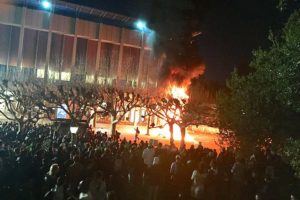
Evergreen was not an isolated situation. Similar meltdowns occurred at the University of Missouri in 2014, the widely-publicized protests at Yale in 2016 regarding Halloween costumes, violent confrontation involving Antifa activists at UC Berkeley in 2017 protesting invited speakers, and the mob at Middlebury that shouted down Charles Murray and injured his faculty host in 2017. Here in Texas, state Representative Briscoe Cain, was ushered out of Texas Southern law school, where he had been invited to speak. There are too many similar incidents to catalog them fully.
I’m going to avoid the jargon—post-Modern, cultural Marxism, deconstructionism, “repressive tolerance,” and the like–because labels and slogans do not advance the debate. They are a substitute for thought.
In nutshell, higher education has lost its way, become overrun with politically-correct bureaucrats and administrators, and now caters to students instead of acting like responsible adults and responsible stewards of the enormous amounts of taxpayer resources entrusted to them. Students should never be allowed to act like a mob, and administrators cannot be afraid of the mob. This is an abdication of responsibility, and a disgrace.
Fortunately, sometimes the “market” works. Due to all the negative publicity at Evergreen State and Mizzou, applications and enrollments fell, causing budgetary distress, financial pressures, and even faculty layoffs. The higher education establishment is finding out that many parents are not going to spend (or borrow) tens of thousands of dollars to send their children to a chaotic social justice indoctrination center masquerading as a college.
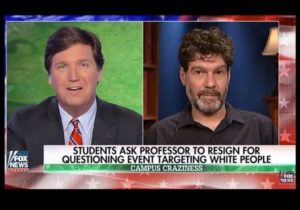
- How should hateful speech be handled in our society?
The short answer to this question is that there is no “hate speech” exception to the First Amendment. The Supreme Court unanimously affirmed this principle just last year, in Matel v. Tam (2017). Other than a few narrow—and well-defined—categories (such as true threats, defamation, obscenity, “clear and present danger,” and “time, place and manner” restrictions), all speech is protected speech. College campuses are not exempt from the First Amendment. Suppressing speech is censorship. Restricting speech is ultimately a form of thought control, and in a free society, the antidote for so-called hate speech is more speech, not a gag or a heckler’s veto. Totalitarian societies place a high priority on suppressing speech.
Moreover, it is impossible to define “hate speech” other than as something currently believed to be offensive or objectionable—ideas someone disagrees with. In a pluralistic society, all ideas are disagreeable to someone. Here’s a short history lesson: In America, many ideas were once considered to be unpopular, anti-social, and even harmful, and faced efforts to suppress them on those grounds. They include literature (Huckleberry Finn!), abolitionist info, contraception info, abortion info, advocacy of civil rights, opposition to war and the draft, pro-union sentiment, teaching evolution, promoting socialism, and many more. As recently as the 1960s—in my lifetime—comedian Lenny Bruce was prosecuted for obscenity in San Francisco and other major cities for using dirty words in a stand-up routine at night clubs. In front of consenting adults who had paid to see him.
You get the point. In any age, the prevailing orthodoxy sees threats from anything that challenges it. Sincere people acting in good faith have always believed that they have good reasons to suppress speech. History has judged those efforts harshly. The current campaign against “hate speech” is just the latest in the parade of misplaced hubris.
The ultimate irony is that in 1964-1965, students at UC Berkeley launched the Free Speech Movement, fighting for the right to advocate controversial political views on campus. They succeeded, establishing the principle that college campuses are subject to the First Amendment. Fifty years later we have speech codes, “bias response teams,” and a generation of students being taught that they have a right not to have their feelings hurt or their presuppositions challenged. We have come full circle. The Left, now in charge of many college faculties and administrations, wants to change the rules to increase its power.
- What is identity politics, and is it the right battleground for today’s politics? Can Americans have a unifying metanarrative?
E Pluribus Unum: Our national motto is etched on every coin you carry in your purse or pocket. Those Latin words translate into either “From many, one,” or “Out of many, one.” In either event, these words were important to the Founders. They appear on the Great Seal of the United States, dating back to the early days of the Republic.
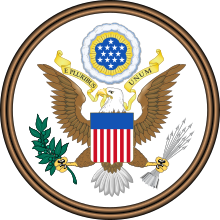
The Declaration of Independence speaks of “one people,” all “created equal” and endowed by their Creator with certain unalienable rights.
America has absorbed immigrants from around the world, but only by “Americanizing” them with a common language and culture. Through assimilation—the now-neglected “melting pot”—different racial, ethnic, and religious groups put aside their differences and embraced the ideal of American exceptionalism, what President Reagan referred to as “the shining city on a hill.”
Americans used to regard themselves as fellow citizens, who pledged allegiance to their flag, stood during the National Anthem, and shared a love for their country.
Now, people are encouraged to nurse grievances, wallow in perceived injustices, compete with one another for victimhood, and to rail against the common heritage that once united us. Whoever is responsible for this dangerous trend—Herbert Marcuse, Saul Alinsky, or whomever—it is destructive. Identity politics is a poison—it represents the opposite of our national motto: Out of one, many.
This is a prescription for divisiveness, tribalism, and rancor. Balkanized fiefdoms. We have to stop counting by race and sex. Get rid of quotas. Hyphenated Americans are divided Americans.
I’m not suggesting that American history is free of fault. No one and no country is perfect. There have been plenty of historical injustices, but the judge of any civilization is not perfection, but progress. Americans have expended great amounts of energy, blood, and resources to become a better society. We should all be proud of our national heritage.
- Conclusion
Again, from Dean Chemerinsky’s excellent book:
Promoting an inclusive culture of mutual respect, tolerating diverse and controversial views, and working through differences by way of conversation rather than intimidation are essential not only to higher education. They are also how free, diverse, democratic societies must behave if they are to remain free, diverse, and democratic. [p. 159] (Emphasis added.)
And from Robert Maynard Hutchins, the famous President of the University of Chicago: “A civilization in which there is not a continuous controversy about important issues is on the way to totalitarianism and death.”
Solutions?
Intellectual diversity is critically important. This, however, is not what campus “diversity” departments seek to promote.
Campuses must protect free speech. Schools should adopt the “Chicago Statement” in favor of campus free speech. If state schools (such as the UT and A&M systems) will not, the Legislature should enact the Goldwater Institute’s model legislation, the Campus Free Speech Act.
Thoughtful people on both sides of the aisle should join together in condemning hooliganism, violence, threats, and intimidation on college campuses. The “heckler’s veto” is mob behavior incompatible with the goal of higher education.
P.S. Good article on a related subject here.































